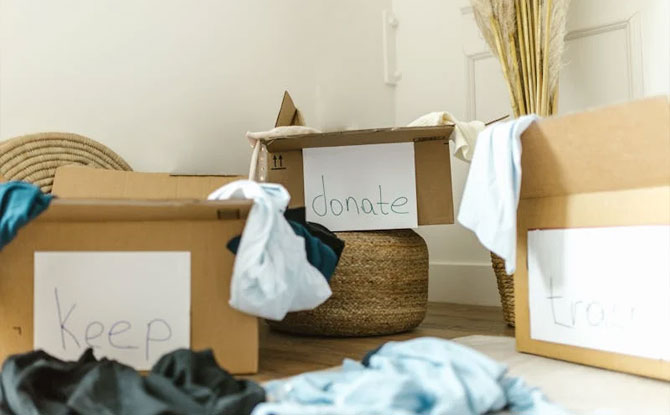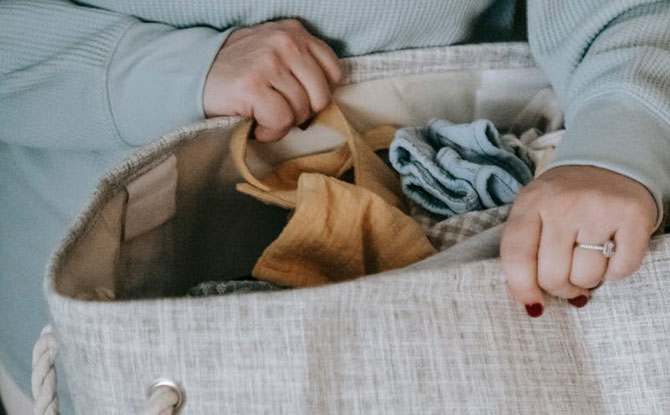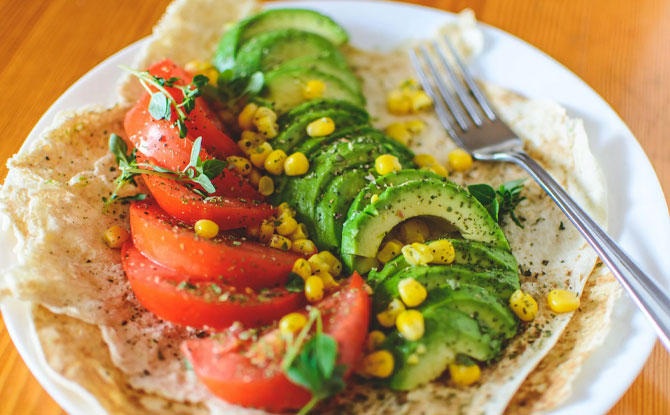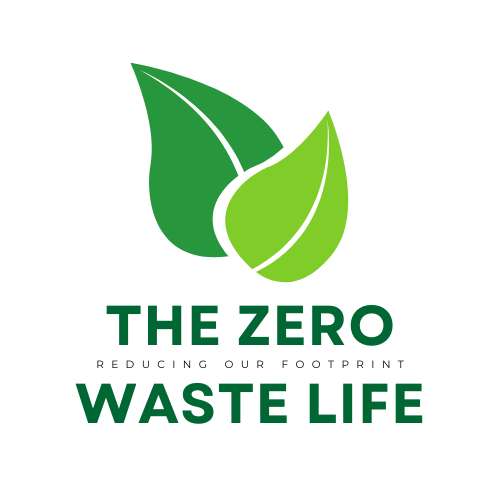Transitioning to a zero-waste lifestyle can feel overwhelming, but adopting eco-friendly habits is easier than it seems. Small, intentional changes can significantly reduce waste and benefit the planet. Here’s a practical guide to help you get started.
Declutter Your Closet and Choose Durable Clothing

A more organised wardrobe is a great starting point for sustainable living. Decluttering lets you part with items you no longer need, creating a streamlined and functional space. Opt for high-quality, durable clothing to minimise waste from fast fashion. This not only reduces environmental impact but also helps you save money and make more intentional purchases.
Embrace a Low-Buy Lifestyle
Adopting a low-buy approach means prioritising essentials and avoiding impulse purchases. Begin by tracking your expenses and creating a budget that aligns with your values. Before buying anything, consider if it’s truly necessary or if a sustainable alternative exists. Focusing on quality over quantity reduces waste, saves money, and fosters a mindful approach to consumption.
Minimise Your Digital Footprint
Cutting back on digital consumption conserves energy and reduces electronic waste. Keep devices updated, delete unused apps, and organise digital files. Limit screen time by scheduling breaks and exploring offline activities. Adjust streaming settings to use less energy, or download content for offline viewing. These habits make a significant difference in reducing your environmental impact.
Simplify Subscriptions
Subscriptions to streaming platforms, apps, and other services can quickly accumulate. Review your active subscriptions and cancel those you rarely use. This not only saves money but also simplifies your digital life. Regularly assessing your subscriptions ensures you’re only paying for what truly adds value.
Explore Sustainable Hobbies
Eco-friendly hobbies like gardening, DIY projects, and hiking connect you with nature while promoting sustainability. Gardening reduces packaging waste and supports biodiversity. DIY crafts using recycled materials encourage creativity and give old items new life. Outdoor activities like hiking foster a deeper appreciation for the environment when done responsibly.
Adopt Green Cleaning Practices

Switching to eco-friendly cleaning solutions is a simple yet impactful way to reduce waste and chemical exposure. Natural options like vinegar, baking soda, and essential oils are effective and safe. Replace disposable cleaning tools with reusable alternatives, such as microfiber cloths and washable mop heads, to minimise waste while maintaining a clean home.
Try a No-Spend Month
A no-spend challenge can reshape your relationship with money and consumption. Commit to avoiding unnecessary purchases for a month, focusing instead on using what you already have. This practice encourages mindfulness, reduces waste, and helps you save money while fostering sustainable habits.
Reduce Paper Waste in the Kitchen

Switching to reusable alternatives in the kitchen can significantly cut down on paper waste. Replace paper towels and napkins with washable cloth options made from natural materials like cotton or linen. These durable alternatives are eco-friendly and cost-effective. Designate a laundry bin for used towels and napkins to make cleaning and reusing effortless.
Shop Second-Hand
Thrifting is an excellent way to reduce waste while discovering unique, affordable items. Shopping second-hand extends the life cycle of clothing and promotes sustainable fashion. Mixing thrifted pieces with your existing wardrobe adds character to your style while reducing your environmental footprint.
Cut Down on Meat Consumption

Reducing meat intake is one of the most effective ways to lower your environmental impact. Meat production generates significant carbon emissions and consumes vast amounts of water. Start small with initiatives like Meatless Mondays and explore plant-based recipes featuring vegetables, grains, and legumes. A diet rich in plant-based foods benefits both the planet and your health.
Start Your Zero-Waste Journey
Embarking on a zero-waste lifestyle doesn’t mean perfection; it’s about progress. Begin with small changes, such as using reusable water bottles, cloth shopping bags, and metal straws. Composting, recycling, and joining local clean-up events can amplify your efforts. Every small step brings you closer to a greener, more sustainable future.
By embracing these practical tips, you’ll find that zero-waste living is not only achievable but also rewarding. Each choice you make contributes to a healthier planet and a more intentional lifestyle.

